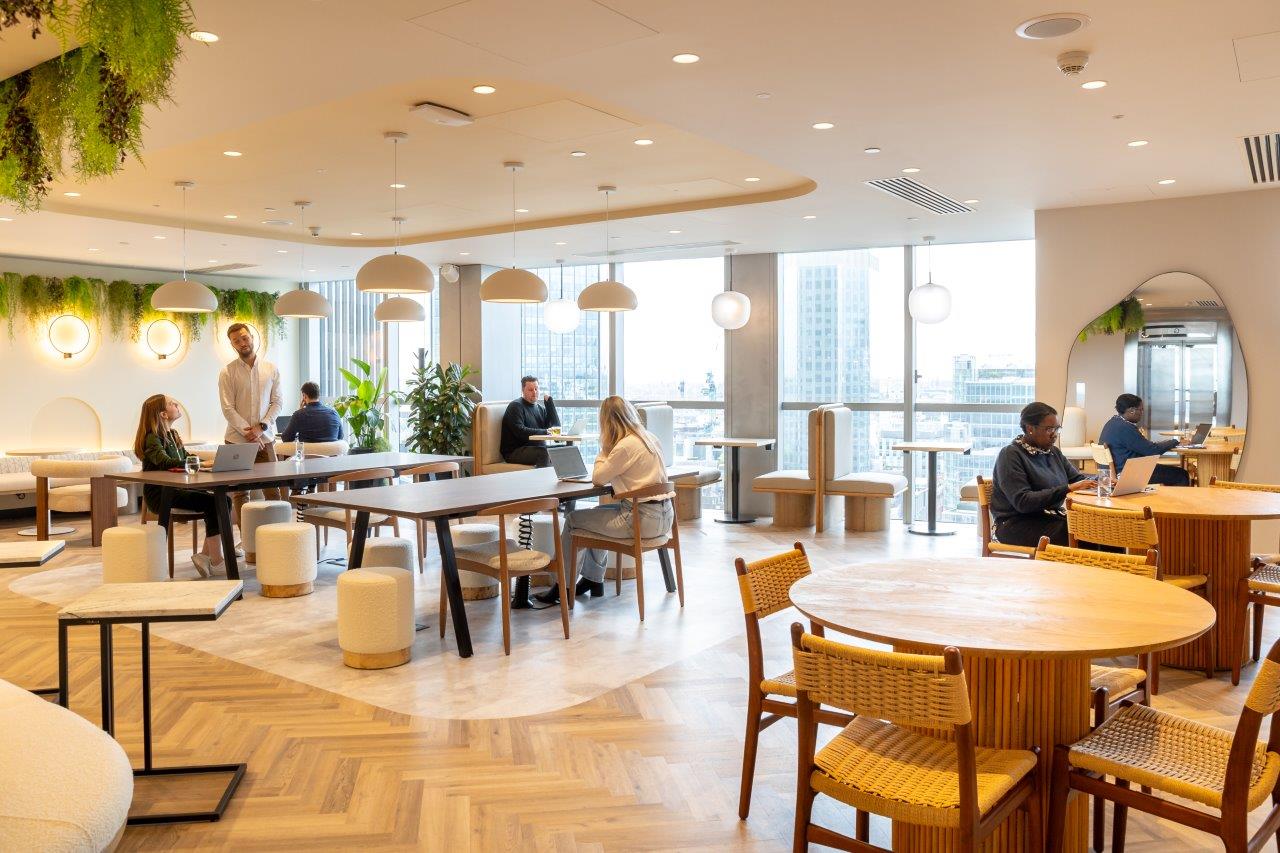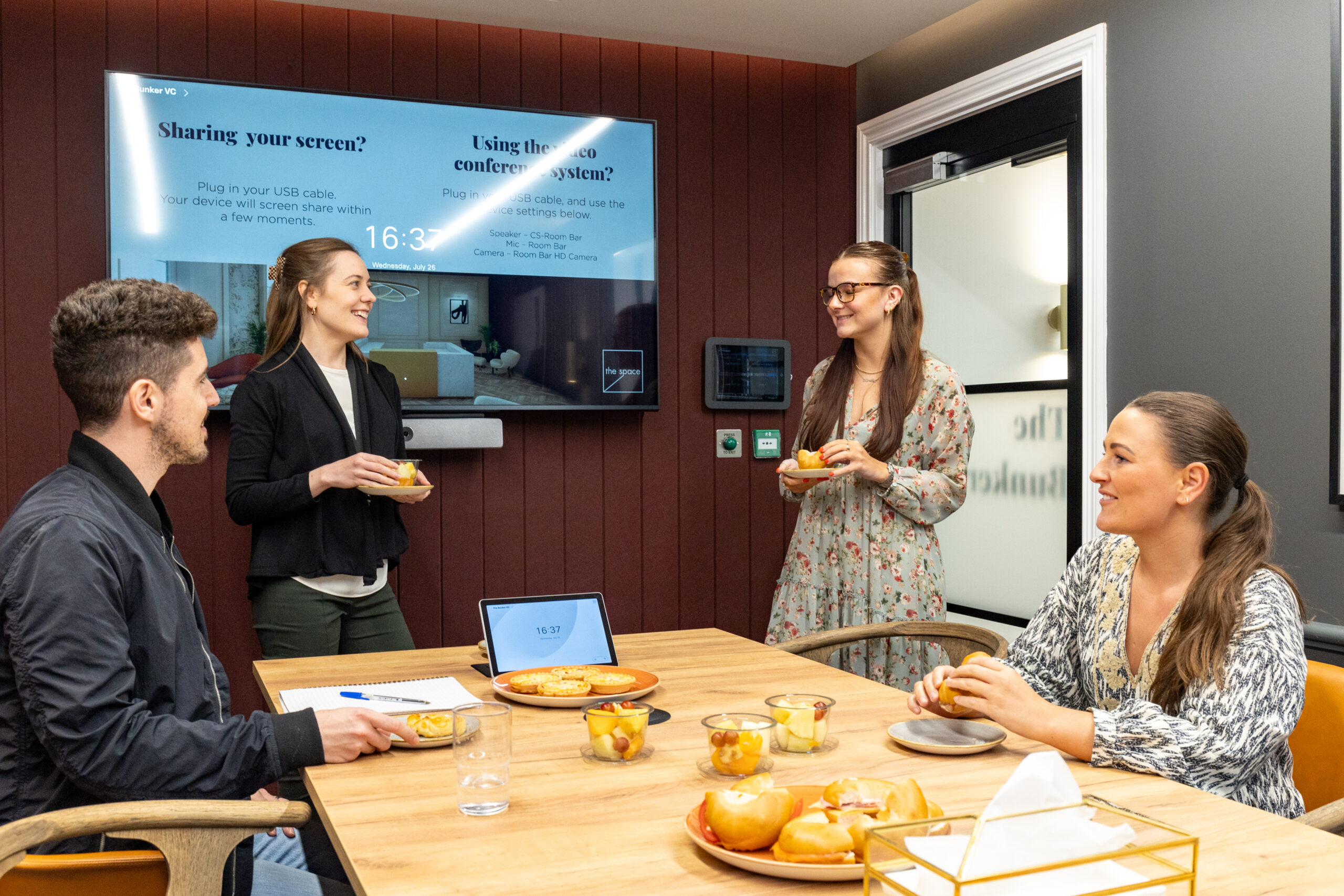What makes an office perk work?
21st September 2017

Private medical insurance, gym membership, free lunch on Wednesdays—whatever it is, an office perk can make any job sound more attractive. But that doesn’t mean it’ll work. The best office perks are more than bonus features for a job advert; they enrich the work lives of your employees and help your office function better as a whole. Read on to find out what really makes an office perk work.
Use perks to bring people together
It’s hard to say precisely what it is that makes a perk ‘work’. The definition of ‘work’ here is flexible. Generally speaking, though, a perk can be said to have worked if it boosts staff morale, and helps generate new ideas. The best way to do this is to bring staff together and let sparks fly—of friendships, and of new ideas.
The Financial Times reports on an online travel company that offered free beer to staff on Fridays. In many cases, this alone would help employees enjoy their jobs. But the real benefit of Free Beer Friday wasn’t the beer, it was the conversation. All of the beer was placed on one table, meaning workers from all over the office had to come together and talk to each other.
A similar thing happens on a daily basis at Google. The cafeteria at Google HQ serves free food to employees, who no doubt enjoy the meals. But as Forbes reports, the “real reason” Google offers free food is to encourage workers from different departments, who would never normally meet, to congregate and talk to each other. According to anecdotal evidence, and sociological science, this is the best way to encourage new ideas to form.
Perks that serve as a petri dish for innovation are a win-win for employee and employer. Though companies spend money on perks, if they help in generating ideas that help your business move forward, they can end up making more money than they take.
Remember your employees are all different
When implementing perks of any kind, it is important to consider how different employees will perceive them. While free beer may be a dream prospect for many, teetotal staff will have little interest in drinking it.
It is important to consider the tastes and perspectives of everyone who works in your office when perk planning. Some perks really are one-size-fits-all. Tech firm Huddle, for example, gifts all new hires a £5,000 bonus, dubbed the ‘Huddle cuddle’. There are more perks to working at Huddle, as one Huddler described in a frenzied blur on GlassDoor:
“… a £500 gift every year 25 days off your birthday off celebratory Krispy Kremes shares annual bonus Thursday drinking club free cinema ticket every week discounted gym membership free lunch on Wednesday free breakfast on Monday…”
Nearly all of these things will be just as liked by one employee as they are by the next, though only the Krispy Kremes, Thursday Drinking Club and free cinema ticket have the potential to unite employees as advised above. Broad, welcoming perks like these should appeal to all of your employees, while other personalised perks, such as a bespoke birthday gift, can add a personal touch.
Track your perks’ progress
Theorising about a perk’s effectiveness is one thing, but examining its real-world results can be far more illuminating. Keeping an eye on whether your chosen perks do or do not work can help you tweak and improve the benefits you offer your employees.
Google’s People Analytics department dedicates substantial resources to this pursuit. In 2012, the department found that Google employees were eating so many of the free M&Ms that it posed a risk to their health, not to mention their productivity. To address this, the team hid sugary snacks away and made healthy options, such as fresh fruit, appear more attractive in glass containers. Thanks to this endeavour, the calorie intake of staff at the Google office fell by 3.1 million.
“Project M&M”, as it was christened, is one example of a good perk gone too far. An even more drastic, if hypothetical, example would be if your company’s Free Beer Friday started to transform all of your workers into alcoholics. Avoiding dangerous indulgence in perks is just as important as encouraging enjoyment.
Not every company has a People Analytics department, but it is still possible to track the effectiveness of most perks. Even casual observation of whether staff seem happier, or whether cross-departmental collaboration seems to have increased, can be enough to determine whether perks are having a positive, negative or neutral effect on your staff’s morale and performance. Based on this analysis, you will be able to make decisions about which office perks truly work for your business.

